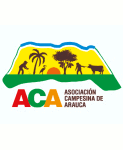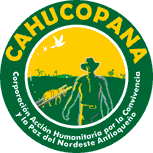|
Turned into military target by the Colombian president
PEN Canada invites journalist threatened by a president
It is Carlos Lozano Guillén, the editor of the weekly papere VOZ, organ of diffusion of the Communist Colombian Party (PCC). PEN qualifies of the most serious the situation of the Freedom of Expression in Colombia. Worldwide solidarity.
/ Saturday 14 April 2007
/ Español
|
Director de Seinforma Canadá

- “The president (Alvaro) Uribe placed to (Carlos) Lozano in a situation of personal risk that muddies his efforts and of many groups of citizens to contribute to the establishment of a real democracy in Colombia.” (PhotoVEA/Seinforma)
Toronto.- Carlos Lozano Guillén, the editor of the weekly paper VOZ, organ of diffusion of the Communist Colombian Party (PCC), will be invited to come to Canada by the international literary and journalistic organization Poets, Essayists and Novelists (PEN), immediately after receiving threats by the president Alvaro Uribe Vélez.
David Cozac, PEN Canada Coordinator, Programs and Writers in Exile Network, said that the essential reason of inviting to Lozano is to know his personal situation, after he was pointed out by Uribe Vélez as accomplice and spokesperson of the guerrillas called Revolutionary Armed Forces of Colombia (Farc), turning him into target of the paramilitary forces that act in the shade of the Colombian President.
The Farc, the most ancient insurgency of the world, appear in the list of terrorist organizations of the Public Safety of Canada (PS), created four years ago to ensure coordination across all federal departments and agencies responsible for national security and the safety of Canadians.
In dialogue with Seinforma in Bogotá, Lozano Guillén said that he will comment the invitation of PEN Canada when he knows all its details.
PEN speaks

- "Our duty is to help the journalists and writers who are in danger in the whole world, we considered this is the case of Carlos Lozano": David Cozac, PEN Canada Coordinator, Programs and Writers in Exile Network. (Photo Alvaro Gomez/Seinforma)
During the interview with Seinforma, the coordinator of the Writers in Exile network in this country said the situation of the journalists and writers in Colombia is the most awful. “Although less journalists have been murdered in Colombia compared to previous years, they work under threat”, emphasized David Cozac.
Seinforma (SJS): What is the intention of inviting the Colombian journalist Carlos Lozano to come to Canada?
David Cozac (DC): Well, we have received news about this journalist who has been threatened and is in some difficulties for his critique against the government of the president Uribe, then due to these threats against him PEN Canada has decided to invite him to come to have some meetings with the community, but with this trip we also hope to offer to Carlos a species of mitigation so that it is possible to go out of his own country during a little bit to a calm country as it is Canada, for to rest from the problems that exist in Colombia at present.
SJS: What specific activities would develop with Carlos here in Canada?
DC: We do not reckon yet for anything, but what we might do with Carlos is to organize some events here, not only in Toronto but also in other communities in the province of Ontario, where we would invite members of the Latin community, Colombian community, as well as to several journalists in exile and Canadian journalists so that these people know the situation of the Human Rights and of war that continues in Colombia and also the history of Carlos Lozano who is a man well known in his country.
SJS: Have you had contact with Carlos during this process of the most recent threat in his against?
DC: Still not because we have received all the news across an exiled Colombian who lives in Toronto who is a Carlos’s friend and has informed us about the situation of him in Colombia. Then we decided, because our duty is to help the journalists and writers who are in danger in the whole world, we considered this is the case of Carlos Lozano and we are in the disposition to offer some types of help to him.
SJS: When could the guest come to Canada?
DC: Well, it depends on the steps that must be done, for example, we are going to send him a letter of invitation, this letter he would have to take it to the Canadian embassy in Bogotá to ask for visa to travel and all that takes time, then in the reality I would say that Carlos might come to Canada, let’s say during the summer, July or August of this year.
SJS: What is the perception in Canada about the Freedom of Expression in Colombia?
DC: Well, the people who know the situation of the journalists and writers in Colombia they all agree in that the situation is the most awful, the situation is serious. Although less journalists have been murdered in Colombia compared to previous years, one works under threat, continue the journalists who turn out to be forced to go out of the country to be protected, to protect his family. Then I want to say that the situation is still equal, the situation is the most serious.
SJS: In accordance with your statistics, how many Colombian writers and journalists do part of PEN Canada?
DC: At present I believe that we are provided with two Colombian journalists in Writers in the Exile in Canada, but I am sure that there is more, then it is a question of identifying them in the country. We are extending the invitation not only to them but also to other writers and Latin journalists, I am sure that they are, so that they get in touch with us.
Worldwide solidarity
The public presidential threat against the editor of the weekly paper VOZ was caused after Uribe Vélez affirmed that the Farc do not have will of realizing a humanitarian exchange between the hostages of that subversive group and the rebellious imprisoned in the state jails. Lozano Guillén obtained information of the Farc that indicates the opposite.
Poets, journalists, artists, filmmakers, defenders of Human Rights, writers, philosophers, anthropologists, academicians and historians of the whole world, sent a missive to the Colombian president (see the letter below) in that they attribute the presidential imputation to the pressure that Uribe feels for the detentions of his political allied forces in the Congress and governmental employees with paramilitary connections.
“Nevertheless, this situation does not qualify him to accuse members of the democratic left side (…). We invite the president Uribe to correct his imputation. The President must give a democratic example of how he confronts his political opponents”, it is said in the letter of the intellectuals.
The letter sent to the Colombian president
“President of Colombia Alvaro Uribe last week framed, unfoundedly and publicly, a very serious accusation against Carlos Lozano, editor of the weekly VOZ. With this attitude, president Uribe placed Lozano in a situation of personal risk that blurs his efforts and those made by many groups of citizens to contribute to the establishment of a real democracy in Colombia .
Besides expressing our solidarity with Carlos Lozano as a leader of the Colombian democratic left, we wish to invite president Uribe to correct his imputation. The Chief Executive must give a democratic example facing his political opponents.
The efforts of civilians to find channels to put an end to the unjust and lengthy situation of dozens of Colombians deprived of their freedom by the guerrilla groups, cannot be the motive of a witches’ hunt. In all conflicts there are good will mediators, who contribute to bring the parties closer in order to avoid or reduce the impact of the confrontation on innocent civilians.
We understand that president Uribe is under great pressure on account of the increasing wave of arrests of government employees and his political allies in Congress on the basis of their relations with paramilitary groups. However, this situation does not qualify him to accuse members of the democratic left. To promote channels for violent actors to abandon their practices against civilians is quite a different thing than being, as is his case, a direct beneficiary of the illicit paramilitary activities.”
“Chico Whitaker, cofounder of the World Social Forum, Alternative Nobel Prize (Brazil); Martin Almada, Alternative Nobel Prize (Paraguay); Laura Restrepo , writer; Juan Manuel Roca , poet; Jaime Ballesteros , president of OSPAAAL-Spain; Jeremy Dear, president of Journalist Union from United Kingdom; Liam Craig-Best, director of Justicia for Colombia, London; Hernando Calvo Ospina, writer and journalist; Ramón Jimeno, journalist; Jorge Enrique Botero, journalist; Hollman Morris, journalist; Carlos Payán, journalist and director of newspaper La Jornada (México); Pietro Lora Alarcón, ACNUR (Brazil); Fernando Rendón , Gabriel Jaime Franco , poets (International Poetry Festival of Medellin, Alternative Nobel Prize 2006), Alonso Ojeda Awad, university teacher; Alberto Nessi, poet (Switzerland); Conceiçao Lima, poet (Sao Tome and Prince); Forrest Hylton, historian (United States); Ana Rosseti, poet (Spain); Iván Cepeda, human wrights defender; María Baranda, Marco Antonio Campos , poets (Mexico); Rosa Alice Branco, poet (Portugal); Nicolás Suescun , Julián Malatesta, J. Mario Arbeláez, Armando Romero, Colombian poets; Eduardo Dalter, Mario Sampaolessi, Fabián Casas, Daniel Samoilovich, Rogelio Ramos , Carlos Barbarito , poets (Argentina); Juan Cameron , Sergio Badilla , Eduardo Llanos, poets (Chile); Víctor Manuel Moncayo, ex director Universidad Nacional de Colombia; Carlos Vidales, historian; Jesús Abad Colorado, photographer; Héctor Rosales, Roberto Mascaró, poets (Uruguay); Norberto Codina, poet (Cuba); Francisco Hinojosa, writer (Mexico); Jacobo Rauskin, poet (Paraguay); Francisco Morales Santos, poet (Guatemala); Adhely Rivero , Enrique Hernández D’Jesús, Pablo Mora , poets (Venezuela); Iván Oñate, Edwin Madrid , poets (Ecuador); José Mármol, poet (Dominican Republic); Isaac Goldemberg, poet (Perú); Miguel Huezo Mixco, poet (El Salvador); Ángela García, Ricardo Cuéllar, Luz Helena Cordero, Mery Yolanda Sánchez, Víctor Raúl Jaramillo, Zabier Hernández, Mauricio Vidales, Álvaro Marín, Omar Ortiz, Felipe Agudelo Tenorio, Víctor López Rache, Federico Díaz Granados, Iván Enríquez, Marlene Mejía, Emilio Ballesteros, Colombian poets; Gloria Chvatal, Natalia Rendón, Rafael Quiroz, painters; Jonathan Fortich, Francisco Ordóñez, filmmakers; Gabriel Ruiz Arbeláez, journalist and director of NTC; Manuel Giraldo -Magil-, Eduardo Márceles Daconte, Pablo Montoya , Fabio Martínez , José Martínez Sánchez, Isaías Peña Gutiérrez, writers; Sara Cifuentes, journalist and writer; Juan Armando Epple, academic and writer (Chile); NicoleCage-Florentiny, poet (Martinica); Eleazar Plaza, editor of Arte and Parte, Cali; Ligia Mejía, Association of Refugees of Latinamerican and Caribe (Belgium); José Henry Ocampo (CUT, Caldas); Gelman Múnera, theatre director; Daniel Rocha , actor; Andersson Delgado (Group Hip Hop 1320); Hernando Morales, musician; Abimael Castro, Alberto Chavarro, Amaury Padilla , journalist; Olimpo Cárdenas, Rubén Zapata , Nelson Orrego, journalist of newspaper Periferia; Francisco Amin Mosquera; Alfonso Conde Cotes, Rubén Darío Arroyo, Jaime Sanabria, Víctor de Currea Lugo, university teachers; Alfonso Castillo, human wrights defender, ANDAS; Adriana Giraldo Ochoa; Camilo Vega González; Otto Higuita, member of National Direction PDA; Colombian women in the world; Ludoviko Martínez, historian and journalist; Héctor Arenas (Latin America Foundation); Carlos López Tascón; Rafael Escobar de Andreis; Luis Carlos Jaramillo Pontón; Alcides Cuello Orozco; Claudia Clavijo, investigator (Spain); Hernando Perdomo, lawyer (Spain); Rodrigo Echeverri; Martha Helena Restrepo; Elvira Concheiro, writer (Mexico); Consuelo Sánchez, anthropologist (Mexico); Iván Darío Ñungo Mican; Alvaro Luna Porras, sociologist; Hernando Romero Pereira, pedagogue; Rodrigo Buelvas; Isnardo Grandas Rincón; Jorge Aristizábal, engineer; Rodrigo Acosta, administrator; Miguel Álvarez, mathematic; Walberto Torres, lawyer; Adolfo Cortés, engineer; Luis Aurelio Ordóñez, economist and historian; Jaime Álvarez Llanos, Francisco Bohórquez, historian; Diego Romero, social activist; Fidel Llinás Zurita, philosopher; Ricardo Villegas Padilla, teacher; Consuelo Granados; Pablo Llontyo, magazine Caras y Caretas; Héctor J. Freire (poet, chef and redaction of poetry magazine Barataria, chef and redaction of cultural magazine La Pecera (Argentina); Camilo Cuervo , philosopher; Germán Prieto; Henry Olarte Suárez; Edgar Bautista, Rosa Inés Noriega; Fabián Parada.”



















